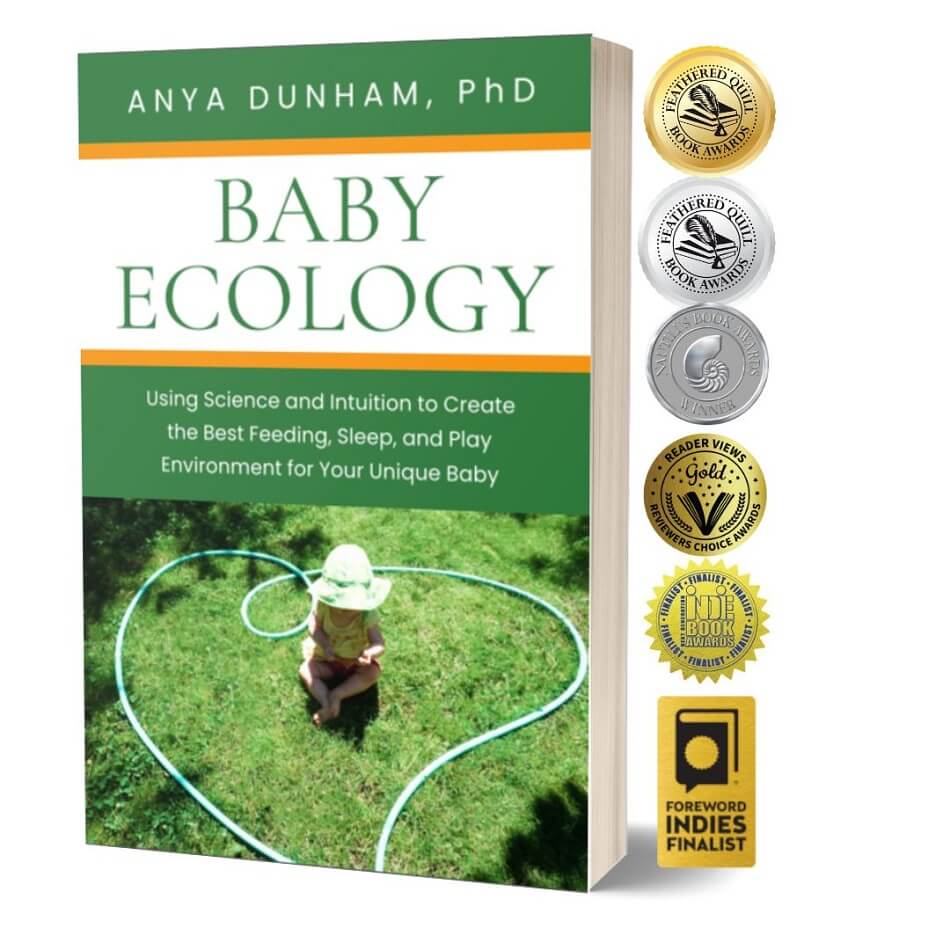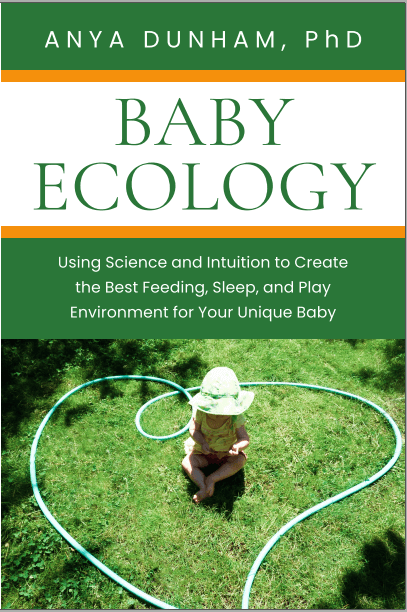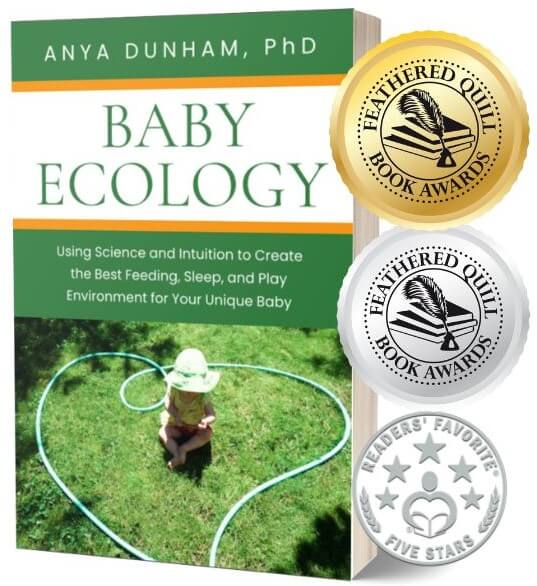Baby Ecology book is here! Learn more
Baby Ecology book is here!
- Home
- Getting Ready Checklist
- Your amazing newborn
Your amazing newborn
by Anya Dunham, PhD
Six scientific findings show how capable, aware, and sensitive your newborn already is.
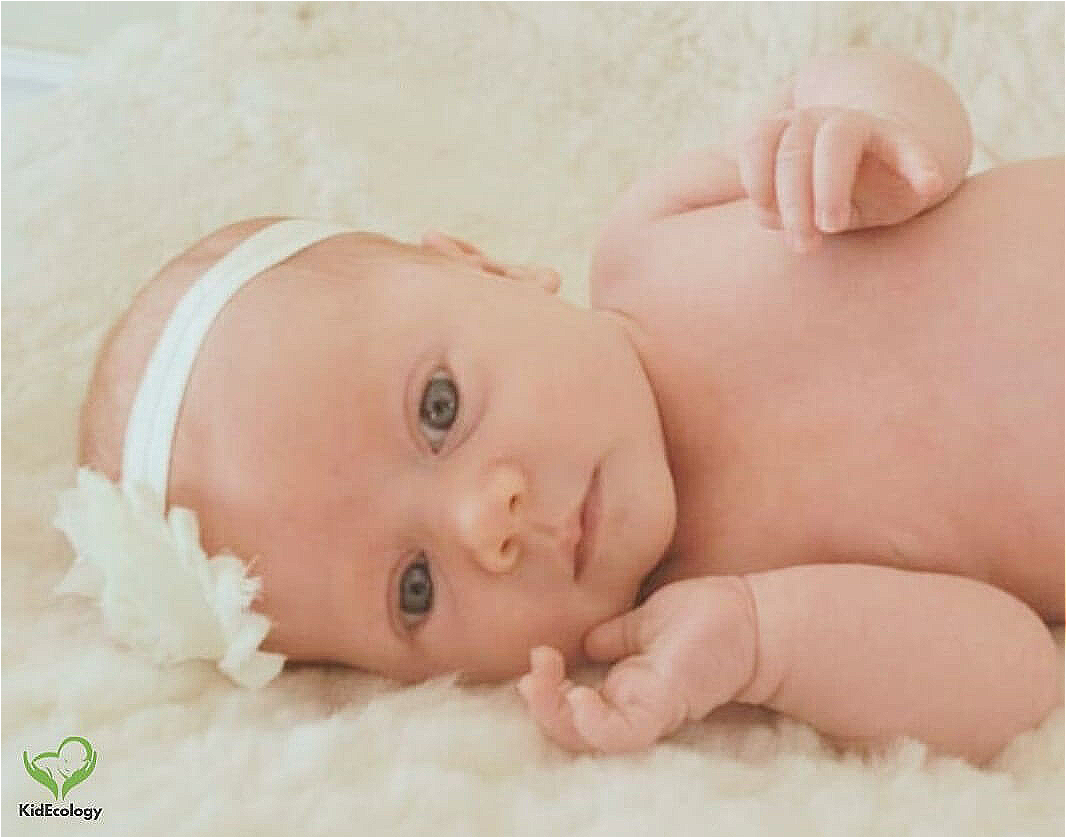
“The child is not an incomplete adult” -- Joseph Chilton Pearce, Magical Child
Our babies are a complex mix of competence and needs: they are already complete and yet so full of potential.
In the new parent haze, it's easy to under-estimate or even miss the things newborns can already do.
Fifty years ago young babies were seen as blank slates. Scientists were discouraged from studying “passive,” “unfinished,” and “not yet interesting” newborns.1,2 Thankfully, many studies have been conducted since, and now we know that newborns are competent right from the start.
They are not yet mobile or independent, of course: they can’t walk like newborn fawns or navigate on their own like newly hatched turtles. The human brain is uniquely capable of complex reasoning and social interactions and, because of that, it takes a long time to develop. This requires humans to have a uniquely long, protected childhood. And our babies come into the world perfectly prepared for just that: growing, connecting, and learning while being fully protected and nurtured by adults.1
Your newborn is capable and aware
Here are 6 scientific findings that show just how capable and aware, sensitive, and ready to connect and learn newborns are. Consider them as you get ready to meet your baby or watch your tiny newborn.*
This article describes just a few interesting and useful to know findings about babies I talk about in my book, Baby Ecology. Find out more and read reviews here.
- Babies develop the ability to hear sounds during the second trimester of pregnancy. In the third trimester a baby can recognize his mother’s voice,3-5 the sound of his mother’s native language,6 and familiar stories she has been reciting.7 This means babies not only hear quite well, but also pay attention, learn, and memorize even before they are born!4
- Newborn’s vision is not fully developed at birth, but he is able to work out the shapes and features of objects that are close to him and that interact with him.8 He prefers looking at human faces9 and learns to recognize his mother’s face within hours of birth if he was also able to hear her voice.10 This means that a newborn’s vision and ability to recognize patterns are already sufficient to connect the voice he remembers to the face he now sees. Babies learn incredibly quickly!
- A newborn can tell if someone is looking at her or away from her.11 Newborns are perceptive.
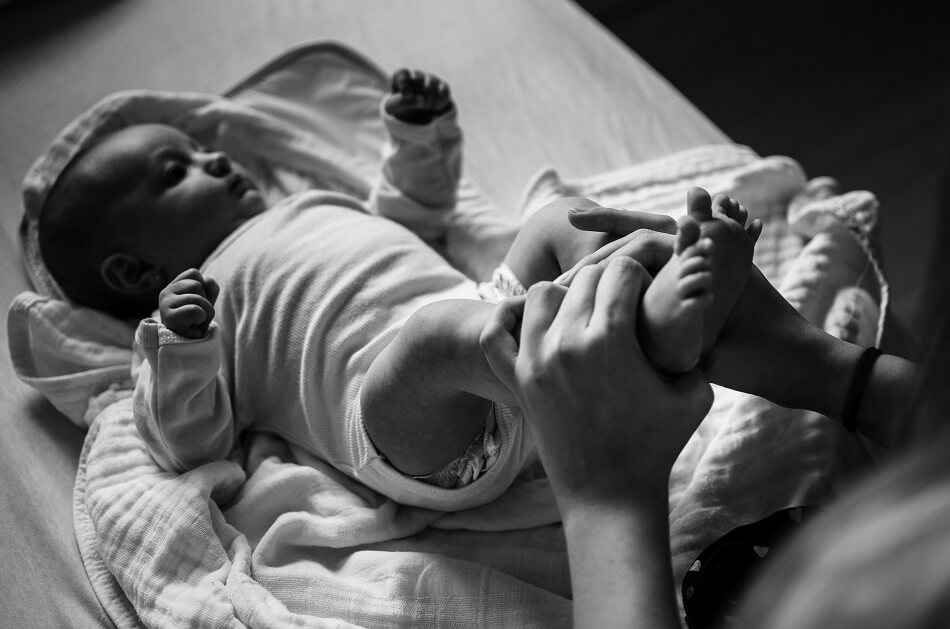
- Newborns are calmed by soothing touch, but may find it stressful when touched in silence and without eye contact. In one study, newborns’ stress hormone levels dropped when they were massaged by a caregiver who made eye contact, spoke soothingly, and rocked them gently afterward. But when they were massaged in silence and without eye contact, they experienced a stress hormone surge, similar to babies undergoing painful procedures.12 Newborns are sensitive and ready to connect.
- Babies experience a variety of tastes while still in the womb and, if fed breastmilk, right after birth. Amniotic fluid and breastmilk carry flavours from the mother’s diet, so the baby begins learning about the foods that are important to her family and culture right from the start.13,14 Newborns are aware.
- Babies are born with an innate ability to feed well. When a healthy newborn is placed skin-to-skin on her mother’s chest after birth and given time, she will use her arms and legs to move to the breast and latch to feed for the first time — remarkably, all by herself.15 You might have heard of this phenomenon as ‘the breast crawl’. Newborns are capable.
You might also be interested in:
References
References
1. Nagy E (2011) The newborn infant: a missing stage in developmental psychology. Infant and Child Development 20(1): 3-19
2. Beebe B (2014) My journey in infant research and psychoanalysis: microanalysis, a social microscope. Psychoanalytic Psychology 31(1): 4-25
3. DeCasper A, Fifer W (1980) Of human bonding: newborns prefer their mothers' voices. Science 208(4448): 1174-1176
4. Kisilevsky BS et al (2003) Effects of experience on fetal voice recognition. Psychological Science 14(3): 220-224
5. Marshall J (2011) Infant neurosensory development: considerations for infant child care. Early Childhood Education Journal 39(3): 175-181
6. Moon C, Cooper RP, Fifer WP (1993) Two-day-olds prefer their native language. Infant Behavior and Development 16(4): 495-500
7. DeCasper AJ, Lecanuet J-P, Busnel M-C, Granier-Deferre C, Maugeais R. (1994) Fetal reactions to recurrent maternal speech. Infant Behavior and Development 17(2): 159-164
8. Slater A (2002) Visual perception in the newborn infant: issues and debates. Intellectica 34: 57-76
9. Mondloch CJ et al (1999) Face perception during early infancy. Psychological Science 10(5): 419-422
10. Sai FZ (2005) The role of the mother's voice in developing mother's face preference: evidence for intermodal perception at birth. Infant and Child Development 14(1): 29-50
11. Farroni T et al (2002) Eye contact detection in humans from birth. Proceedings of the National Academy of Sciences 99(14): 9602-9605
12. White-Traut RC et al (2009) Salivary cortisol and behavioral state responses of healthy newborn infants to tactile-only and multisensory interventions. Journal of Obstetric, Gynecologic and Neonatal Nursing 38(1): 22-34
13. Mennella JA (1995) Mother's milk: a medium for early flavor experiences. Journal of Human Lactation 11(1): 39-45
14. Schaal B, Marlier L, Soussignan R (2000) Human foetuses learn odours from their pregnant mother’s diet. Chemical Senses 25(6): 729-737
15. Klaus M (1998) Mother and infant: early emotional ties. Pediatrics 102(Supplement E1): 1244-1246
Using hundreds of scientific studies, Baby Ecology connects the dots to help you create the best environment for sleep, feeding, care, and play for your baby.
Warmly,
Anya
